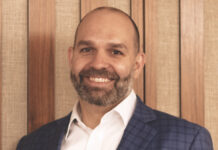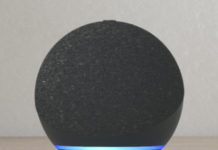
Kristen McQueary is a reporter for the Chicago Tribune. She writes about state and local politics and says she depends on local radio in Chicago. She listens to and from work, she streams radio at her home, and she listens to podcasts to catch up on what she might have missed. “I don’t even walk the dog without grabbing earbuds and strategically avoiding dead zones on our route.” So why is she upset?
McQueary writes in a Chicago Tribune piece that radio has got to be local for her to love it. “I want my cheesy, sophomoric radio stunts choreographed by Chicagoans who also can chat about the weather, an awkward date, or the inhumanity of sleet in May. I want Lin Brehmer’s ‘Lin’s Bin’ on WXRT 93.1, the very best storytelling in Chicago. I want crosstown trash talk. I want someone to admit they actually like Navy Pier. I want hosts who know it’s Vito & Nick’s Pizzeria even though everyone calls it Nick & Vito’s.”
What’s McQueary’s specific gripe? It’s the decision made by iHeartMedia’s “Big 95.5” to pipe in Bobby Bones. She’s not saying Bones and his team are not talented, quite the opposite. “They’re a ‘brand.’ They’re glitter. They’re welcome panache in a small Minnesota town or a rural Nebraska media market.” However, McQueary believes in a city as big as Chicago there needs to be a local morning show. “Chicago is the third-largest city in America — at least until Houston monster-trucks over us with its rising population figures. We should have a local lineup of morning show hosts who know Chicago, not jet past it on their way to LA. The talent is here. Interest in country music is growing. And politics permeates everything. We should have morning radio that reflects it.”
And this part of McQueary’s column is what makes the difference clear between having local hosts and a syndicated show on your station. “Last week, the city welcomed a new mayor. It was national news. Other music stations in town chatted it up on air or included it in their social media feeds. Do Bones and Co. have any idea what’s going on in Chicago? Can they name a popular dive bar or find Water Tower Place on a map or identify a member of the City Council? I’m no radio expert, but I do know an out-of-town morning team from Nashville sells listeners short.”
McQueary is a member of the Chicago Tribune Editorial Board and can be reached by e-mail at [email protected]
Read McQueary’s column HERE.









It’s crucial to have a plan in place from the start that focuses on what makes your station distinctive in order to stand out amid so many other stations.
In order to stand out among so many other stations, it’s important to have a strategy in place from the beginning that focuses on what makes your station unique.
Local options are available for those that want them… shouldn’t listeners who want to hear Bobby Bones also have a choice? It’s not an either/or situation.
All the big group owners are moving from over-the-air to OTT: over the top. In TV, that’s over the top of cable, which replaced over-the-air (OTA) for most people decades ago. In radio, it’s over the top of OTA, via streams and podcasts on the Net. In both cases, the final imagined product is subscription-only, with group owners competing in a silo-vs.-silo way. We see a drift in that direction with iHeart’s urging the listening world onto its app. and we see it more clearly in Entercom pulling its streams off the open Net (so they no longer appear, for example, on the TuneIn app, which prior to that move played all the streams in the world) and isolating them inside its own proprietary Radio.com app. In the course of that, Entercom is saying “IP addresses on the Net are not the new radio dial at all. In fact there is no radio dial in the digital world. There are only proprietary isolated systems competing against each other for subscribers.” The end state is one where “stations” exist as fossil remnants with call letters and slogans within closed and proprietary subscription systems providing a mix of streams and podcasts. Localization is part of that, but it’s still a freaking mess while the future arrives, unevenly.
Local radio success is all about being locally unique, locally compelling, locally relevant (which can be expressed in so many ways), timely and consistent.
No other medium can do it better – the key is ensuring that we execute on these parameters across the board, throughout the hour, throughout the day, every day.
It’s amazing to me that after all that has happened to radio up to this point, we have people who continue to kick her and hold her neck down with a foot. We have choice? (Common sense). Syndication has talent? Yes. (Common sense). This article is to support the proven again and again fact that localization is the biggest factor that radio is missing. We have Bones in my market and he is great. Among others that are piped in, we are missing real localization in the market. The few talents that are here are so very suppressed by PPM it’s difficult for them to express anything.
I see my son, my daughter and they do not relate to any radio talent as my friends and I did growing up. It’s really incredible how they consume media. It about “right here, right now”. I understand the time we are in. I understand they are young and patients runs short at that age. I understand they have more choices than we did in our time. All common sense. The real question is What can we do as a collective effort to promote localization? To me it’s difficult to pin point what we can do if the FCC continues in the path that it’s in. Just like at home, it all starts at the top.
“What can we do as a collective effort to promote localization?”
Get your kids to throw away their phones. Try to use media the way you did as a kid. No computers, no phones, no cable, and no apps. Tell me how that works out.
This is not about syndicated shows in general, or Bobby da Bonesman in particular.
It’s about the real-time, real-place individuals on the air that drove through the same storm as did local commuters.
This element, I believe, is the most sorely missed, but usually unarticulated factor of “live” radio.
Talents that are, indeed, “live” but still sound like they are “coming from the can”… well, that’s another matter.
Radio is about choice. So if one country station in Chicago offers a syndicated morning show, switch to the other one (WUSN), and you’ll hear all local all the time. It’s really easy. No reason for everyone to say and do the same thing. There are lots of local voices in Chicago radio. You can hear about the mayor anywhere. I’ll say this about Bones: He isn’t saying that he’s in Chicago when he isn’t. He isn’t lying to people. They know who and where he is. If that’s a problem, then they shouldn’t listen. But for a country music station, he’s closer to the people who make it than anyone in Chicago. The people have a choice. What’s wrong with that?
All it takes is a decision to go “live & local”.
It also takes knowledgeable, skilled talent to make the exercise worthwhile.
Any performer from out-of-town can learn the local touch stones as they go along.
But, if they are not exceptional communicators, as well, the project becomes a crap shoot – with a requirement of holding folding money, just to get into the game.